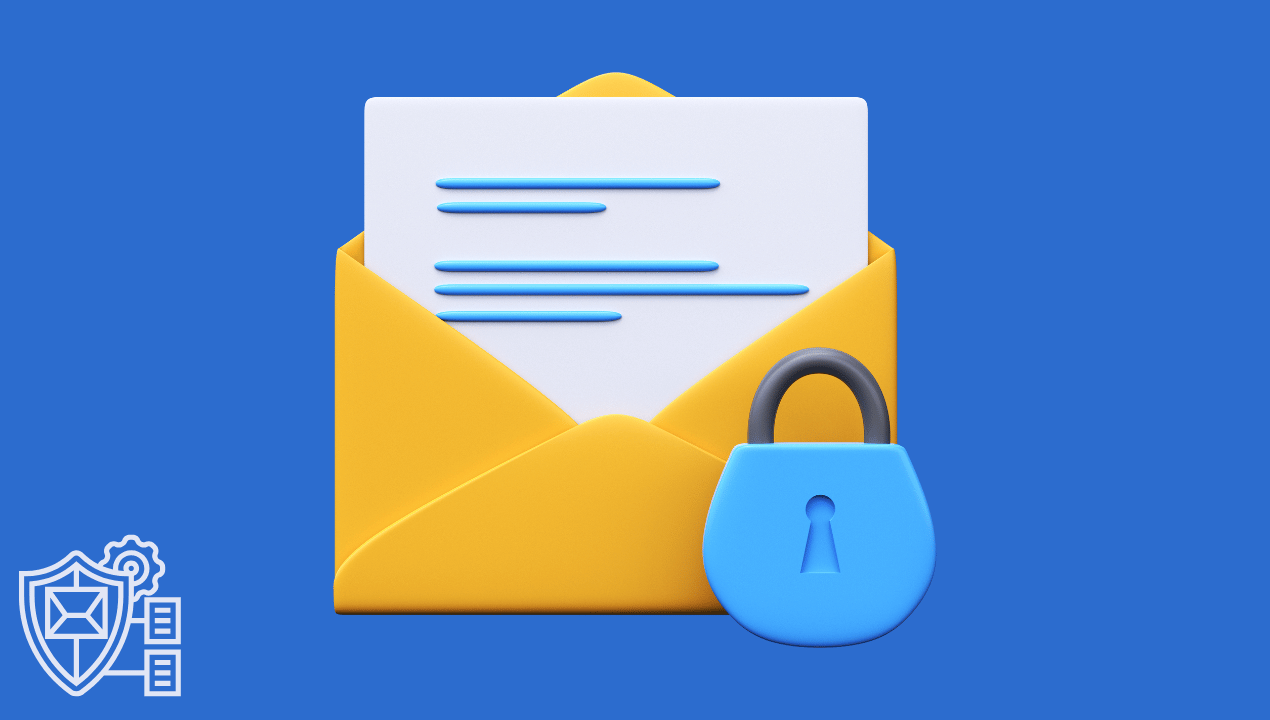Marketing is no longer just about reaching the right audience—it’s also about protecting them. As digital channels like email, SEO, and paid ads continue to fuel business growth, they’ve also become prime targets for cybercriminals. Email, in particular, is both a lifeline for communication and a top vector for phishing, spoofing, and brand impersonation. In this article, you’ll explore why email security is now essential to marketing success (And not just IT’s problem).
That’s why smart companies now treat marketing and cybersecurity as a joint mission. When you secure your email infrastructure and outbound campaigns, you don’t just block threats—you boost trust, deliverability, and ROI. In this article, we’ll explore why email security is a must-have for modern marketing and how it can actually fuel growth rather than slow it down.
Marketing Is a Growth Engine—But Also a Risk Vector
Marketing has never been more essential. Content, email campaigns, SEO, social media, paid ads—every channel is a chance to attract attention and convert leads. But the same tools used to grow a business also open doors to cyber threats.
Email marketing, for example, is a staple for B2B and B2C growth. Yet every campaign increases exposure to phishing, spoofing, and malicious attachments. The more email a business sends or receives, the more attractive it becomes to attackers.
That’s why leading companies now treat marketing and security as two sides of the same coin. They don’t just think about deliverability and open rates. They also think about authenticity, privacy, and how to protect their enterprises and customers.
Email: The Lifeline of Business Communication
Email is the most common mode of business communication worldwide. Sales pitches, invoices, contracts, support tickets—it all flows through inboxes. It’s also the #1 target for cyberattacks.
Phishing, spear phishing, business email compromise (BEC), and malware delivery all start with a simple message. Criminals know that impersonating a vendor or employee can yield huge payoffs. And small businesses are no less vulnerable than global enterprises.
That’s why email security isn’t optional. It’s foundational.
Effective email security monitoring includes:
- SPF, DKIM, and DMARC: These authentication protocols prevent spoofing and ensure only authorized senders can use your domain.
- Advanced threat detection: AI-driven systems that scan for suspicious links, attachments, and behavior.
- User training: Employees must know how to recognize fake emails and respond correctly.
Secure email is not just a technical fix—it’s a trust builder. It tells customers, partners, and leads, “We take your safety seriously.”
Protecting Your Marketing Channels From Abuse: Why Email Security Is Now Essential to Marketing Success (And Not Just IT’s Problem)
If you’re running outbound marketing campaigns—especially via email—you must ensure that bad actors can’t impersonate your brand. Nothing destroys credibility faster than a phishing email that looks like it came from you.
Implementing DMARC (Domain-based Message Authentication, Reporting, and Conformance) is one of the best ways to prevent this. It enforces domain-level email policies and sends reports on any suspicious use of your domain.
A properly configured DMARC policy:
- Blocks fraudulent emails before they reach inboxes.
- Increases email deliverability and inbox placement.
- Protects your domain from being blacklisted.
Combine that with regular audits of your sender infrastructure and consistent branding across all outbound messages. Customers should never wonder if a message “really came from you.”
Trust Drives Conversions: Why Email Security Is Now Essential to Marketing Success (And Not Just IT’s Problem)
Trust is the most valuable currency in digital marketing. You can have the best SEO, the most compelling content, and a killer product. But if customers don’t trust you, they won’t click, buy, or refer.
That trust can be built—or broken—via email.
Imagine a customer gets a fake invoice “from” your company. Or a phishing email using your domain. Even if you weren’t directly hacked, the damage to your brand is real. They won’t just ignore the email—they might walk away for good.
By contrast, companies that invest in security-minded branding win points. They use:
- Verified sender domains.
- Clear unsubscribe options.
- Encrypted links and attachments.
- Transparent privacy policies.
These details matter. They show that your business is modern, professional, and careful. And they turn first-time visitors into long-term customers.
Why Email Security Is Now Essential to Marketing Success (And Not Just IT’s Problem): Boosts Marketing ROI
When your emails reach the inbox consistently and without suspicion, your open rates improve. Better open rates lead to more clicks, more conversions, and a higher return on investment (ROI).
Email deliverability and email security are deeply connected. Internet Service Providers (ISPs) and corporate mail filters favor authenticated, trustworthy senders. If your messages aren’t authenticated, or if your domain has been spoofed in the past, you may end up in the spam folder—or blocked altogether.
Improving your security posture leads to better email performance. It’s not just about protection—it’s about efficiency and results.
Growth and Security Can Work Together
In fast-moving businesses, security is often seen as a blocker. But when implemented correctly, security can accelerate growth. It clears the path for safe, confident communication. So, eliminates distractions and emergencies. It builds credibility.
Here’s what forward-thinking businesses are doing:
- Integrating IT and marketing teams to align strategy and risk mitigation.
- Auditing mar tech stacks for vulnerabilities (e.g., old plugins or insecure APIs).
- Training marketers on security basics—so they can spot red flags and protect campaigns.
- Investing in domain reputation as part of brand building.
The end result? Companies that don’t just grow quickly—but grow safely and sustainably.
Conclusion: Security Is Smart Marketing
Marketing and email security are no longer separate concerns. In the age of digital communication, they’re deeply intertwined. Businesses that recognize this—and take proactive steps—gain a competitive edge.
They don’t just reach more people. They earn more trust. Furthermore, they avoid brand damage. They build systems that scale with confidence.
In short: growth and safety are not at odds. In the most successful businesses, they’re part of the same strategy. Prioritize both, and you’ll stand out in a noisy, high-risk world.








